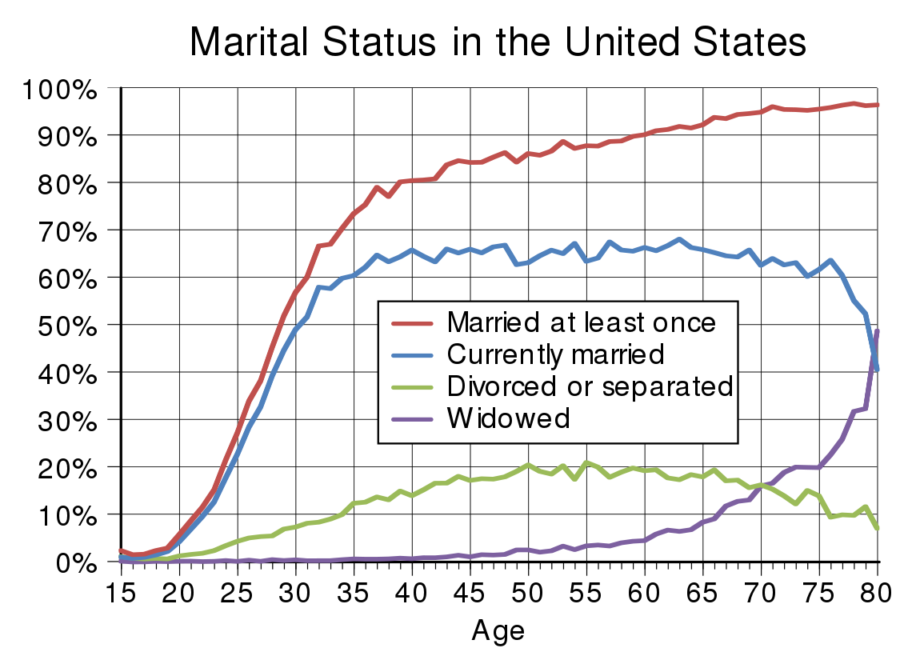The Detriments of Divorce
Photo courtesy of Wikimedia Commons under the Creative Commons license. https://upload.wikimedia.org/wikipedia/commons/c/c7/Marital_status_of_residents_of_the_United_States_of_America_in_2015.svg
February 1, 2018
The American population likes to ignore its issues. One issue that affects more than half of all American children is divorce. The statistics on divorce are mind-baffling. As a child of divorced parents who have also each been divorced a second time since their divorce when I was 3, I know how much this issue actually affects children, despite the so-called ignorance that adults claim to have. I, however, am not in a unique situation. Of the +50% of children who experience their parents divorce, half of those children will also witness their parents getting divorced a second time.
One interesting trend that I had noticed in my life is that the farther into D11 you get, the more children have divorced parents. I went to D11 schools in elementary and middle school and I always had multiple close friends with divorced parents, but since coming to D20 and Air Academy, I only know a couple people who have divorced parents. This strange correlation is linked to income. In general, the lower the income of a couple, the more likely they are to get divorced. Twenty eight percent of children who live with divorced parents live below the poverty line.
Along with the obvious outer detriments, such as constantly moving back and forth or not knowing what it’s like to have all of your things in one place or not growing up with 2 parents, there are multitudes of emotional implications for children of divorce. Here are some statistics.
According to McKinley Irvin, 43% of children in America are being raised without their fathers. 43%. That number is staggeringly high.
Children who live with both biological parents are likely to be 20-35% healthier than children of divorce both mentally and physically.
Children whose parents are divorced are more inclined towards mental problems than children who experience the death of a parent.
Broken homes produce twice as many suicide attempts from young people as non-broken homes.
There is 14% higher of a chance that people will stay married if their parents are happily married.
https://www.mckinleyirvin.com/Family-Law-Blog/2012/October/32-Shocking-Divorce-Statistics.aspx
There are many, many more statistics about how divorce affects children all over the internet. But, although these statistics seem bleak, not everything is bad. In my experience, my friends whose parents are divorced are generally much more well-rounded than those whose parents are still married. There is also a much higher degree of independence, since we have to rely on ourselves for many things and don’t have a stable environment, we become more self-sufficient. Another benefit is that, for people who split their time between their two parents, they get to experience each parent as an individual and see them happy, because if they were together they wouldn’t be happy. Being around unhappiness is far more injurious than just going through divorce.
There is no doubt that divorce has many negative affects on children. Although it brings a lot of suffering and is very inconvenient for us kids, not everything is bad. We are stronger and more independent than most.
















